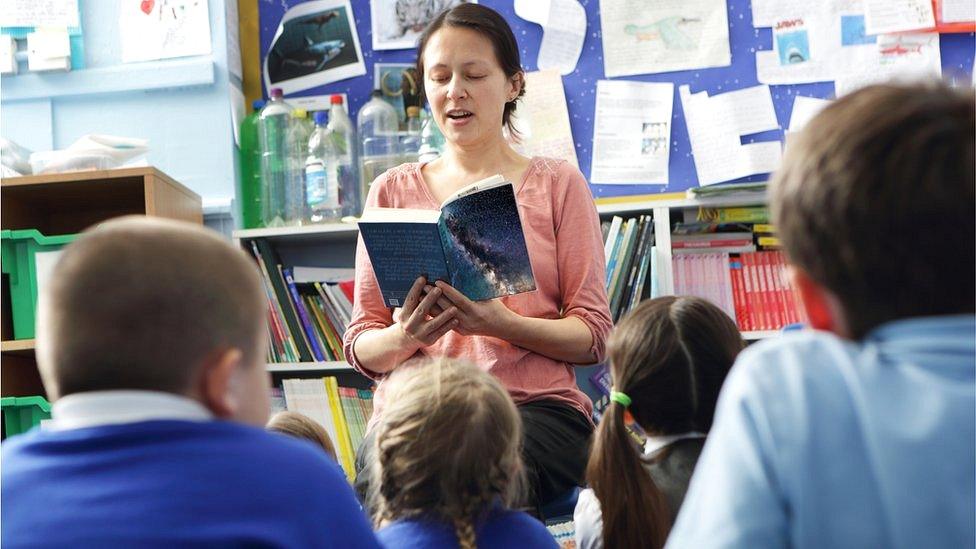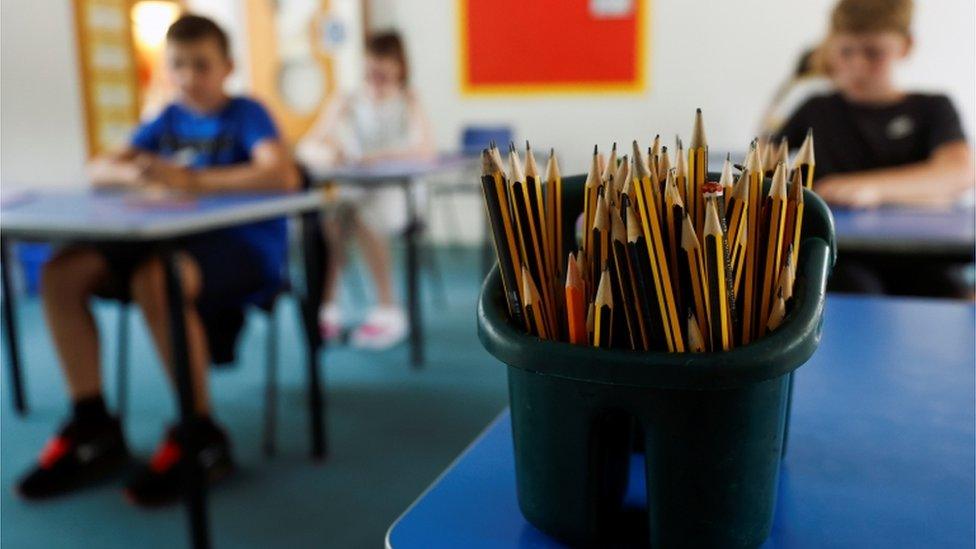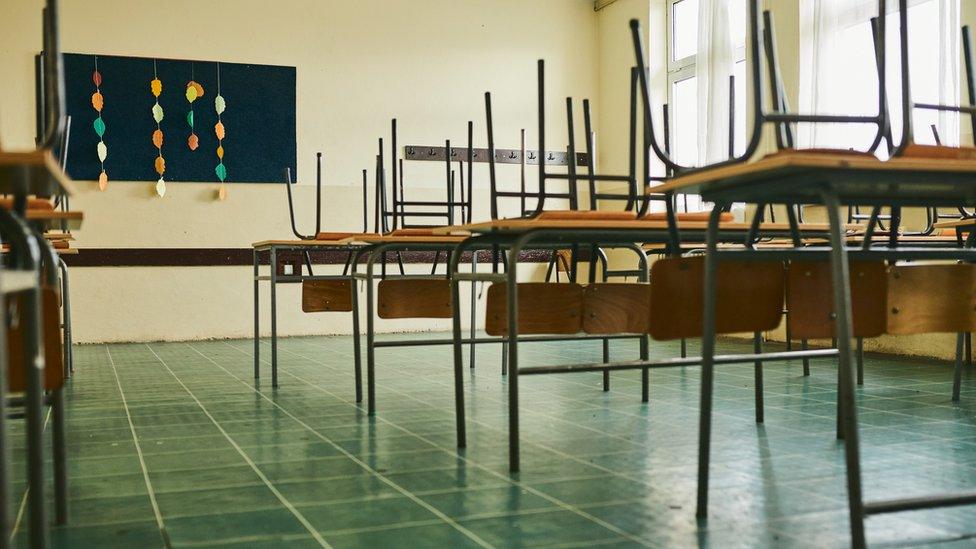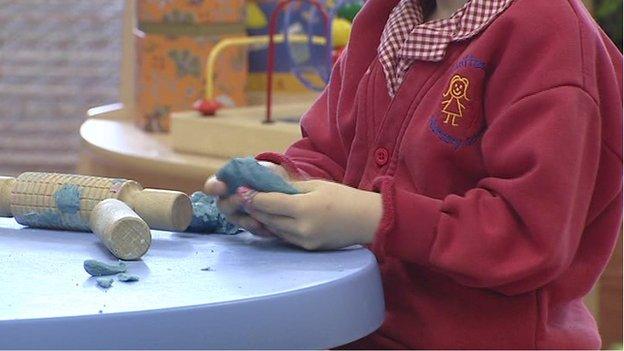Peter Weir to prepare bill on 'flexible' primary school starting age
- Published

Education Minister Peter Weir wants to bring in a law allowing some children to defer starting primary school for a year.
Most children in Northern Ireland start school in the September of the school year after their fourth birthday.
That is one of the youngest primary school starting ages in Europe.
However, children whose birthdays fall between 2 July and 31 August start school in the September following their fifth birthday.
That means children can start primary school from ages ranging from four years two months to over five years old.
In many other European countries, however, children do not start formal primary school education until they are aged six or even seven.
According to recent research by the European Commission, children do not start primary until they are six in almost 30 countries - including Germany, Belgium, Spain and France.
In some, like Finland, children do not formally start primary school until they are seven.
However, most children do go to some form of pre-school in those countries before those ages.
'Flexibility'
Mr Weir told the assembly on Tuesday that he intends to introduce legislation to allow parents "flexibility" over when their children enter primary school in Northern Ireland.
His predecessor as education minister, Sinn Fein MLA John O'Dowd, had previously attempted a similar move.
Any new law would not change the primary school starting age for the vast majority of pupils in Northern Ireland, but could give flexibility for parents to defer their children starting primary school for a year if they felt it would be beneficial.
That includes parents like Mary Boden, whose daughter Sadhbh was born fourteen weeks prematurely.
"She should have been born at the end of August, which would have had her starting P1 in September 2024, but because she arrived, then in May that puts her into the previous year," she told BBC News NI.
"That would mean she would have to start P1 in September 2023 which means she would have just turned four and would be in a class with children, who should who should have been a full year above her in school."
"At least, having the option would mean that she would be able to defer starting P1 if she needs to.
"She may not need to, but at least we have we could have that option come the time."
'Extra time to grow'
One Belfast mum has said the current education system in Northern Ireland "left her with little choice" but to home school her son for one year.
Brenda Pierse chose to home school her son, Emmet, for one year after he found it difficult adjusting in nursery.
Speaking to BBC Radio Foyle, Mrs Pierse said: "By keeping him back that year, without sounding too dramatic, has actually been life changing for my son.
"It has allowed to give him that space and extra time to grow and be more confident in himself.
"All kids develop differently and they need to find the best environment for them to learn and flourish."

The law would not change the starting date for the majority of pupils in Northern Ireland
The Tiny Life charity for premature babies also said parents should have the opportunity to choose for their child to go to school in the academic year they would have started in, had they been born full term.
Tiny Life's chief executive Alison McNulty said research had shown a negative impact on some children born prematurely if they entered formal education too soon.
"Under current legislation these children find themselves in school a year too early and are often the youngest in the class," she said.
"We believe these children born prematurely would be happier, more confident and academically successful if their due date, rather than birth date, was used for school entry."
Mark Langhammer, of the National Education Union (NEU), also backed the proposals.
"Peter Weir supported the campaign led by NEU and Parents Outloud from the outset and his announcement is very welcome," he said.
"Whilst the flexibilities proposed are small measures, it is not hyperbole to describe them as life-changing for the small number of families affected.
"The cross-party support shows the assembly and executive in good light, responding to heartfelt need."
Mr Weir said that Department of Education (DE) officials would now begin preparing a bill to allow some children to defer starting primary school.
However, it will require consultation and assembly support if it is to become law before the end of the current assembly mandate in 2022.
Related topics
- Published28 January 2021

- Published22 April 2015
